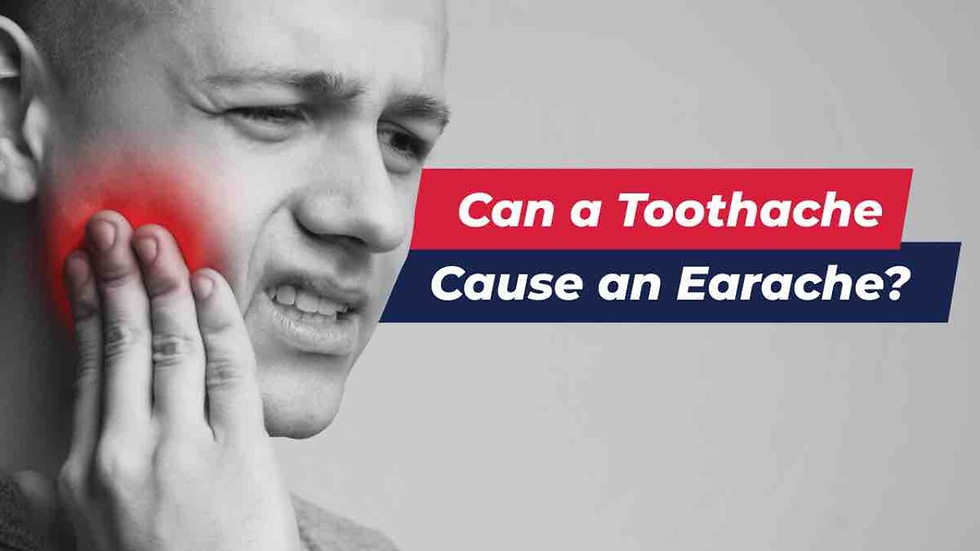Could Poor Oral Hygiene Be Affecting Your Ears? Exploring the Hearing Risks of Oral Bacteria
- damicodds
- Jul 30, 2025
- 3 min read

If you’ve ever experienced hearing troubles, you might not have considered how oral health affects hearing, but your oral hygiene could play a role. Without proper care, harmful bacteria can develop around your teeth and gums, potentially leading to issues such as infected tooth roots, periodontal disease, and TMJ disorders, all of which highlight how oral health affects hearing.

How Oral Health Connects to Your Ears
Neglecting to brush, floss, or attend regular dental check-ups can result in problems like bacteria buildup in the roots of your teeth, gum infections, or jaw issues. Since your jaw and several nerves are closely connected to your ears, maintaining good oral health can help prevent ear pain and hearing problems. This connection further demonstrates how oral health affects hearing. Let’s explore some key ways oral hygiene can impact your ears and hearing.

Infected Tooth
An infected tooth can cause severe pain and throbbing. When bacteria penetrate the tooth’s protective enamel and reach the root’s nerve, they can cause significant discomfort and possibly lead to an abscessed jaw.
But the impact doesn’t stop there. Oral bacteria can spread to blood vessels in your ears and other areas, while pain from the nerves in your teeth can radiate through your jaw. This is especially true for the nerves in the upper jaw, which are located near the ear canals. Consequently, a toothache might also trigger ear pain, such as an earache, thus showing how oral health affects hearing.
To avoid these complications, schedule a dental appointment if you notice a toothache. Your dentist can perform root canal therapy to remove infected nerve tissue from the tooth root, relieving pain and preventing the spread of bacteria into your bloodstream.

Periodontal Disease
Bacteria from an infected tooth can spread to the gums, prompting your immune system to fight back through inflammation. Unfortunately, this response can damage gum tissue, potentially leading to tooth loss—a condition known as periodontal disease.
Periodontal disease can also affect your hearing. As your body combats bacteria, blood vessels that supply the nerve cells in your ears may narrow. If insufficient blood reaches these nerves, they can begin to deteriorate, potentially causing hearing loss, and highlighting how oral health affects hearing.
To prevent this, it’s essential to maintain good dental hygiene through regular brushing, flossing, and dental check-ups. If periodontal disease develops, visit your dentist promptly for treatment to protect both your oral health and your hearing.

Temporomandibular Joint (TMJ) Disorders
The temporomandibular joint (TMJ), located near your ears, enables your jaw to move up, down, and side to side, allowing you to eat and speak. When this joint is injured or affected by a condition that limits jaw function and causes pain, it’s referred to as a TMJ disorder.
Because the TMJ is situated close to the ears, it can lead to symptoms that impact ear health, including:
Earaches
A full or clogged sensation in the ear
Muffled or slight hearing loss
Tinnitus (ringing in the ear)
Regular dental visits can help detect early symptoms and prevent more severe complications. Dentists can also provide corrective care for tooth-grinding issues or alignment problems that contribute to TMJ disorders.
Protect Your Oral and Hearing Health
These issues are largely preventable with consistent oral hygiene practices, such as brushing, flossing, and attending routine dental check-ups. Understanding how oral health affects hearing can guide your efforts. As healthcare professionals, we’re here to address your concerns and answer any questions about your hearing health.




Comments